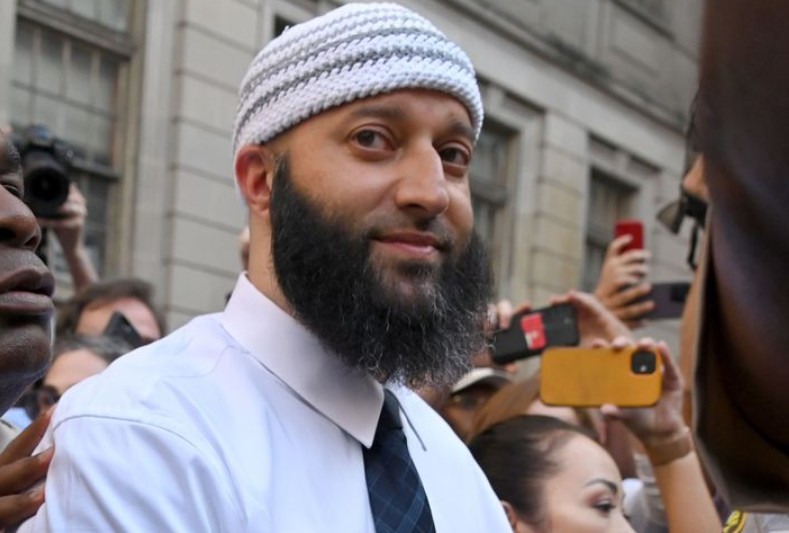The Case Against Adnan Syed: Life After Prison and a Continuing Riddle
Adnan Syed, formerly at the centre of one of the most notorious felonious cases in the United States, now navigates life outside captivity walls.
His story, immortalised in HBO’s 2019 docuseries The Case Against Adnan Syed, continues to evolve, leaving both questions and curiosity in its wake.
Syed’s conviction for the 1999 murder of high school pupil Hae Min Lee shocked the nation. The brace, former classmates at Woodlawn High School near Baltimore, had participated in a youthful, violent love.
Lee’s journals reflected it vividly: “He’s the cutest, sweetest, and coolest guy,” she wrote, “and he loves me.”
Yet slightly a month after their bifurcation, Lee dissolved on 13 January 1999. Her body was discovered nearly four weeks later in Leakin Park.
Syed, whose case drew global attention through the periodical podcast, spent decades fighting to clear his name.
HBO’s series initially ended in 2019 when the Maryland Court of Appeals denied him a new trial.
However, his legal battle persisted until his eventual release in 2022, a culmination documented in a special fifth episode aired on 18 September.
The next chapter in Adnan Syed’s journey from incarceration to freedom.
A special episode of #TheCaseAgainstAdnanSyed premieres tonight at 9pm on @hbomax. pic.twitter.com/2oapGlj77x
— HBO Documentaries (@HBODocs) September 18, 2025
Rabia Chaudry, attorney and family friend, who firstly brought Syed’s story to periodical host Sarah Koenig, emphasises that Lee’s murder remains undetermined.
“I think people need to still keep asking the questions and understanding that for every innocent person who’s in prison, there is a person who is a killer who’s out there,” she says.
“And that’s what I believe is happening in this case, that whoever killed Hae Min Lee is out there.”
Syed’s path to freedom was far from simple. In September 2022, former Baltimore State’s Attorney Marilyn Mosby challenged the validity of his conviction, urging a judge to vacate it.
Stepping out of court, Syed returned home to find a world converted into a tree once no bigger than a stick now towering above. His father saluted him with a kiss and the words, “ I’m so glad to see you. ”
Yet legal hurdles continued. In March 2023, the Maryland Court of Appeals reinstated his conviction, siding with Lee’s family over procedural notice.
Months later, Syed’s lawyers invoked Maryland’s Juvenile Restoration Act, noting he was under 18 at the time of the crime. On 6 March 2025, his sentence was reduced to time served.
His murder conviction technically remains. Chaudry has long championed reinvestigation of the case, pointing to potential suspects.
“If I had the power to reinvestigate the case with the state’s resources, I would begin with the man she was dating,” Chaudry notes, referencing Lee’s boyfriend at the time, Don Clinedinst.
“I would begin with the man that she told her friend, ‘I’m going to see that day,’ because he’s never been eliminated.
Compare his DNA against the DNA found on her. Start there. Compare his hair to it. Eliminate him, and then we can move on.”
Alonzo Sellers, the man who reported discovering Lee’s body, also draws suspicion. A 2020 account details a disturbing encounter in Leakin Park involving Sellers, who later pleaded guilty to second-degree assault.
According to HBO, Sellers was never fully eliminated as a suspect, police never tested his DNA or hair samples against the crime evidence.
As of May 2025, the Baltimore Police Department has yet to match new DNA findings against alternative suspects, leaving the investigation open-ended.
Despite times behind bars, Syed remains loyal and hopeful. Since December 2022, he has worked at Georgetown University’s incarcerations and Justice Initiative as a program associate.
Chaudry reports that Syed, now living in Virginia with his wife, is “the same kind, considerate, nonconfrontational, positive person he’s always been.”
He is also cautiously optimistic about the future. “Now that it’s over, I do believe he wants to go to college and finish his degree,” Chaudry says. “And hopefully have a family one day, have some kids.”
Syed’s wife, whom he met while in prison, initially contacted him after watching Serial. Chaudry recalls, “She was probably the first one he wrote back, in all these years.”
Their connection grew over letters and phone calls, eventually leading to visits and marriage. Chaudry praises her role in Syed’s eventual release: She’s lovely.
“And she worked very hard. The [reduced sentence under the Juvenile Restoration Act] could not have been passed if it weren’t for all the work she did behind the scenes.”






